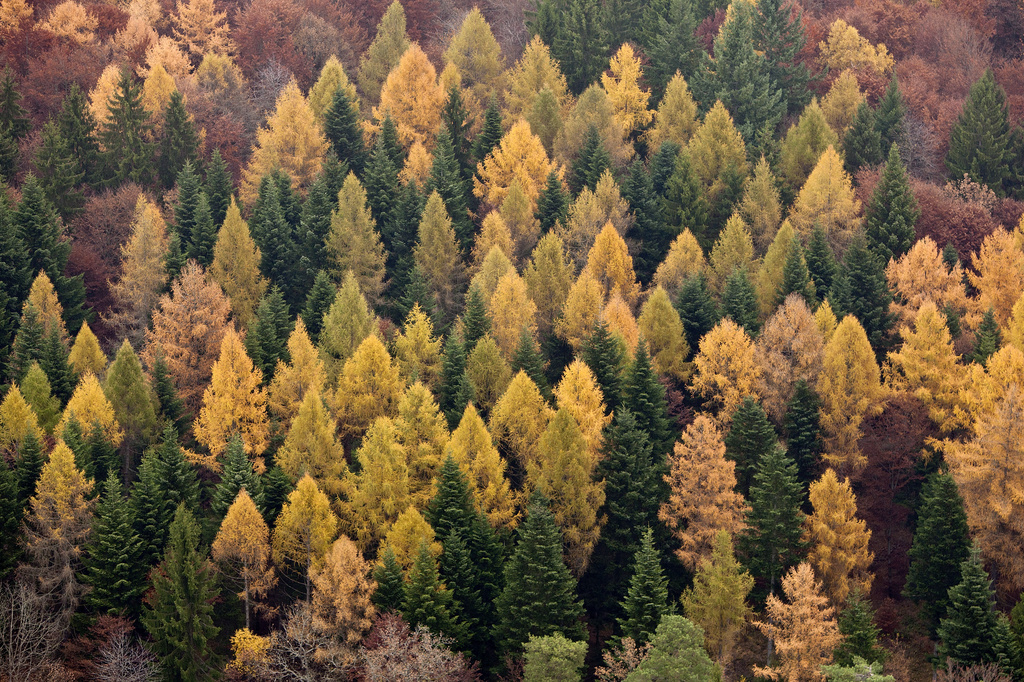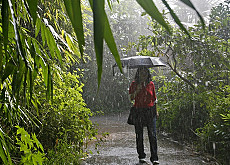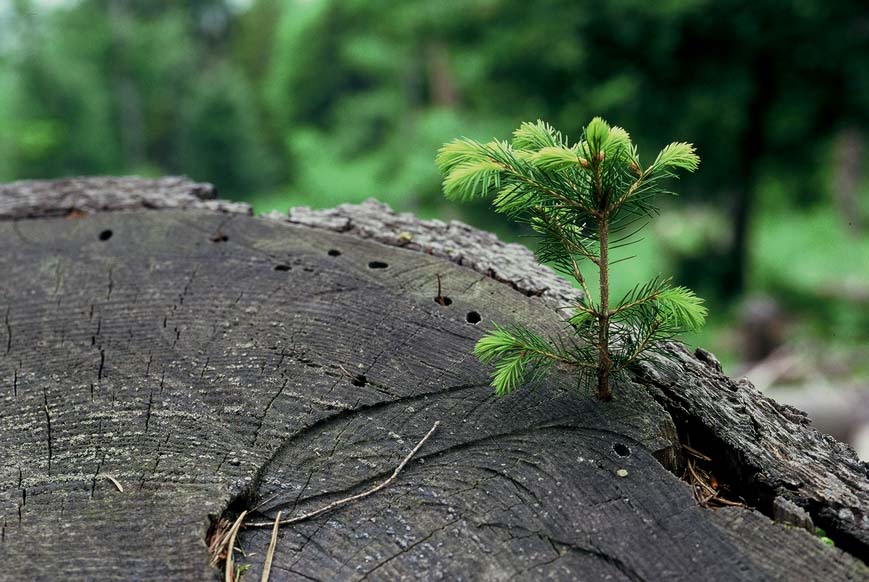Forests flourish but face challenges

After a year devoted to biodiversity, the United Nations has turned its attention to forests. In Switzerland, trees cover more than 30 per cent of the country.
Olivier Schneider, forestry engineer and expert in forest policy and conservation at the Federal Environment Office, says the year will help raise awareness of the problems facing the world’s forests, such as deforestation.
In Switzerland urbanisation and climate change are two particular challenges.
swissinfo.ch: What does the UNInternational Year of Forests mean for the Swiss authorities?
Olivier Schneider: It’s an opportunity to raise awareness of forest problems around the world. As managing and conserving forests is an age-old practice in Switzerland, people take the situation for granted. But it’s far from ideal elsewhere including some of our European neighbours.
That’s why Switzerland is involved in international processes for conserving and managing forests sustainably.
swissinfo.ch: What is better in Switzerland than elsewhere?
O.S.: Forest conservation and management policy dictates that people are not allowed to clear forests, for example. It’s a principle in force for more than a century and means that while forests were largely overexploited and in a bad state in the middle of the 19th century [resulting in bad flooding], we now have double the forest surface area and forests have been restored to health.
Forest access is also very anchored, as it has been in the civil code since the beginning of the 20th century. The civil code allows every citizen free access to all forests, no matter the owner. In France, by contrast, owners may restrict or stop people from entering their forests.
swissinfo.ch: Why does the state need to get involved?
O.S.: We need the forest but the forest does not need us. State intervention is based upon the benefits society draws from forests. The state plays the role of regulator, and of guarantor of the protection and framework conditions needed to exploit forests sustainably.
The state, in this case the cantons, has, for example, the legal duty to guarantee that forests play a role in protecting against natural hazards – especially in the mountains where they prevent landslides, rock falls, avalanches and floods. Leaving forests to themselves would mean, given the natural evolution of the ecosystem, that some of the older ones would offer less protection. The state ensures this does not happen.
Things like timber production and wood energy – linked to climate change – are left to the private sector. The state does, however, offer support and advice to forest owners.
swissinfo.ch: Forests are expanding in the mountains, but stagnating in the lowlands. And urban expansion means less space for agricultural land. How do you see this situation developing?
O.S.: The different interests concerned have to be considered from a town and country planning and territorial development perspective. Urban zone development causes high value agricultural land to be lost at a rate of 4,000 hectares a year.
It’s not the forest’s fault. It’s a bad idea to lower protection anyway because forested land is already under pressure from urbanisation. Action should be taken in the form of protecting agricultural zones.
But forest is overtaking agriculture in the mountains. One solution… is reopening areas lost to agriculture through forestation, by, for example, relaxing the replacement criteria after forest has been cleared.
This seems reasonable as it doesn’t call into question the principle of forest conservation… But this type of measure won’t work without an active agricultural policy to maintain agricultural lands.
swissinfo.ch: What is your main concern regarding forests in Switzerland?
O.S.: It’s climate change, both in terms of temperature and major weather events which could hit forests hard. Rising temperatures means that species that are currently well adapted to their environment will be less so in future. This will weaken forest ecosystems.
Current thinking involves trying to raise the forests’ resilience, especially by increasing the number of species to ensure forests include species more tolerant to climate change.
swissinfo.ch: Are the problems faced by Swiss forests a European-wide or a particularly Swiss problem?
O.S.: Both. But one particularity is that Swiss forest is richer in wood capital per unit of area…. We have a very high quantity of wood per hectare, which comes about naturally but also from wanting to preserve our natural capital. Forest owners have not been permitted to use more than is produced for more than a century. As bankers would say: only using the interest on the capital.
In Switzerland 72% of forests is in public hands. Trees cover just under a third of the country (1.28 million hectares). Forest coverage has increased over the last century and a half and continues to do so, especially in the Alps where it has retaken abandoned agricultural lands.
There are 120 different types of forest in which more than 20,000 types of animals and plants can be found. Half of all species are indigenous. 2.5% of forests are reserves and exempt from use. The authorities would like to increase this to 10%.
Forests are important to the fight against global warming because they absorb CO2. They contain 4-5 times more carbon than the atmosphere above Switzerland.
The federal forests law bans clearing except if this is compensated by trees being planted elsewhere. But this is under discussion.
The International Year of Forests was launched on February 2, 2011, at the General Assembly Hall in New York City.
Economics Minister Doris Leuthard will mark World Forest Day on March 21.
(Translated from French by Isobel Leybold-Johnson)

In compliance with the JTI standards
More: SWI swissinfo.ch certified by the Journalism Trust Initiative





You can find an overview of ongoing debates with our journalists here. Please join us!
If you want to start a conversation about a topic raised in this article or want to report factual errors, email us at english@swissinfo.ch.